
Cochlear Implants for Hearing Loss
Request an appointment today: 310-829-6595
Hearing loss is one of the leading causes of overall disability worldwide, affecting approximately 466 million adults and children (6%).
While hearing aids are widely prescribed for hearing loss, these are not always the best option. For those whose hearing loss is not improved by the use of hearing aids, or have single-side hearing loss, cochlear implants may represent a better solution.
Beyond difficulty in hearing, untreated hearing loss can have profound effects on overall health, particularly in older adults. It has been linked to cognitive decline, depression, social isolation, an increased risk of falls, and even cardiovascular issues.
While hearing aids are a common solution, they are not always for everyone. For individuals who no longer benefit from hearing aids or those experiencing single-sided deafness, cochlear implants may provide a more effective alternative. These implants can restore access to sound, improving not only hearing but also quality of life, communication, and cognitive function.
What are cochlear implants?
A cochlear implant for hearing loss is an electronic device that is implanted into the inner ear (the cochlea) and is used to restore hearing in patients who no longer benefit from traditional hearing aids or have hearing loss in just one ear. While a cochlear implant does not re-create normal hearing, it allows individuals to understand speech and perceive sounds in a way that improves communication and quality of life.
For children, cochlear implants are FDA approved for infants as young as 9 months old and can often be approved off-label at even younger ages (which is routine in other parts of the world).
It’s important to note that cochlear implants are not an instant fix – they require time, patience, and rehabilitation to achieve optimal listening outcomes. Our team supports patients through follow-up programming and specialized rehabilitation to help them adjust to their new hearing experience. For a detailed comparison between cochlear implants and hearing aids, learn more here.
Cochlear implant surgery
The cochlear implant surgery is a 1- to 2-hour outpatient procedure that involves making an incision behind the ear. The patient will return home the same day. A small opening is made in the mastoid bone to reach the inner ear, where the internal receiver and electrode array are placed within the cochlea. These components work by bypassing damaged parts of the inner ear and directly stimulating the hearing nerve, allowing sound signals to reach the brain.
Most patients resume their normal activities within days of the surgery. A post-operative visit with your surgeon will take place 1-2 weeks after surgery, followed by device activation approximately three weeks post-surgery. This delay allows for swelling to subside and the incision to heal.
If you’d like to learn more about how cochlear implants work, we explain the process in more detail here.
Am I a candidate for cochlear implant surgery?
Cochlear implants are recommended when a person cannot hear well with hearing aids or with significant hearing loss in just one ear. The Food and Drug Administration (FDA) has approved the use of cochlear implants for adults who meet specified criteria. Cochlear implant criteria have expanded over the past years. Shockingly, only 5% of patients who would benefit from a cochlear implant receive them.
Your cochlear implant team at Pacific Neuroscience Institute will complete a comprehensive evaluation with optimally fit hearing aids to determine candidacy based on insurance and FDA criteria.
- Medicare criteria are the most conservative. Moderate to profound hearing loss and poor speech understanding in both ears. The ACI Alliance is lobbying to improve access for Medicare patients.
- Hybrid candidacy: Patients who have good low frequency hearing and very poor high frequency hearing benefit from hybrid stimulation (acoustic and electric in the same ear).
- Single sided deafness / unilateral profound hearing loss: One normal hearing ear and the other ear with profound hearing loss.
- Asymmetric hearing loss: Hearing loss in both ears with poorer hearing in the ear to be implanted.
- Traditional criteria for patients 18 years old or older: Limited benefit from amplification defined by aided speech understanding in both ears with poorer understanding in the ear to be implanted.
At PNI we can advocate for our patients if a cochlear implant is requested for “off label” use and authorization (non-FDA approved).
A cochlear implant requires an in-tact auditory nerve to deliver the sound to the brain. Examples of where cochlear implantation may be appropriate include:
- Sudden sensorineural hearing loss
- Noise induced trauma to the ears
- Hearing loss associated with the aging process
- Ototoxic effects of certain medications
- Hearing loss due to meningitis or infection
- Inherited forms of progressive hearing loss
- Fractures of the skull base that impact hearing
- Severe otosclerosis (abnormal middle ear bone formation) involving the inner ears
Considering a cochlear implant
Cochlear implants are not suitable for everyone but can be highly effective for individuals with sensorineural hearing loss, where the issue lies in the inner ear (cochlea) rather than the auditory nerve or brain. Candidates typically include those who:
- Have severe to profound hearing loss in both ears
- Receive minimal benefit from hearing aids
- Have functioning auditory nerves capable of transmitting signals to the brain
Choosing a cochlear implant is more than just a procedure—it marks the beginning of a lifelong partnership with the PNI cochlear implant team. Our specialists are here to guide and support you through every step of the process, from evaluation and surgery to activation and rehabilitation.
Cochlear implant evaluation
The purpose of the cochlear implant evaluation is to obtain a comprehensive view of how an individual is performing with optimally fit hearing aids so we can determine if a surgical approach is best suited for the patient.
The evaluation does not mean you must have surgery. During the process we obtain diagnostic information to determine implant candidacy based on FDA criteria. We also work with the patient, the patient’s support system and our multidisciplinary team to determine the best care individuals. We ensure each patient is well informed and comfortable with their decision.
If you decide not to be a cochlear implant candidate at the time of your evaluation, we will create a plan for your hearing healthcare. We are also able to re-evaluate in the future should a patient’s hearing change and/or if FDA criteria expand. Our cochlear evaluation process involves the following protocol:
1. Audiologic cochlear implant evaluation
- An initial evaluation lasts approximately 90 minutes
- You can expect to complete diagnostic testing with and without hearing aids to assess your hearing status
- You will be provided with counseling and information about hearing loss and cochlear implant benefits and limitations
- We will discuss each patient’s specific aspirations and goals for their hearing journey
2. Balance assessment
- A referral is made for individuals who need to have their inner ear of balance assessed more thoroughly
- Individuals with a history of balance issues
- This assessment can also help us choose which ear to implant if both ears hear equally. We would choose to implant the ear with the weaker inner ear of balance
3. Surgical consultation
- Our surgeon will assess if you are medically a cochlear implant candidate
- They will review the recommended surgical approach, surgical risks and answer all questions
- They will review the structure of your inner ear via MRI and CT imaging
- The meningitis vaccine can be administered the same day as your consultation as it is indicated for patients undergoing cochlear implant surgery
4. Brain health assessment
- members of our brain health team at PNI.
- As one of the leading institutions studying dementia and Alzheimer’s disease, we understand the important role hearing plays in cognition. Our experts can track and correlate cognition changes with cochlear implant outcomes
5. Cochlear implant manufacturer choice
- We want our patients to make a well-informed decision about which company they will have a life-long relationship
- We can connect you with recipient outreach managers from all 3 device companies (or a narrowed down selection) to further review equipment options and resources
Your journey will be organized and guided by our cochlear implant coordinator and cochlear implant surgery scheduler to ensure the process is seamless and efficient.
What happens after cochlear implant surgery?
The cochlear implant is not a “quick fix” and involves time, patience, and practice to meet your listening goals. In fact, recipients usually can’t understand speech at the activation visit and may only hear a robotic quality voice or beeps/static. This is completely normal! Most patients perceive great benefits by 3 months after their cochlear implant activation visit. The sound quality improves with each follow up programming (or mapping) visit, with your audiologist. You will see your audiologist, 1 month post activation, 3 months post activation, 6 months post activation and then annually or as needed.
Auditory training and rehabilitation techniques are a vital part of being a successful cochlear implant recipient. Our team will provide you with a rehabilitation training plan. We also offer to connect you with our auditory verbal therapist partners to schedule virtual or in-person visits which can put you on a tailored treatment plan for success.
Cochlear implantation is a journey for you and your support system. Hearing loss and cochlear implantation effects the recipient and their loved ones. Our team will guide you through your post implantation visits and rehabilitation. You will have a lifelong, collaborative relationship with your cochlear implant team at PNI!
Cochlear implant program at Pacific Neuroscience Institute
Our hearing health experts provide many benefits to our patients.
Experience and expertise: Our team of professionals have extensive knowledge in diagnosing and treating complex hearing disorders.
Collaborative care: Multidisciplinary approach to comprehensive care is the core value of the PNI. Our cochlear implant surgeon, specialized cochlear implant audiologist, vestibular audiologists, brain health neurologists, auditory verbal therapy and speech therapy partners meet routinely to discuss and tailor treatment for each individual patient.
Accessible care: We can deliver super specialized care at the community-based level. We can deliver same-day services with appointments for audiology, otology, vestibular assessment, vaccine administration, and often imaging.
Support: Our in-house team helps schedule your visits and ensure a timely, seamless protocol where the patient feels well informed and part of the decision process. Our goal is also to create a PNI cochlear implant recipient community where we host gatherings and classes that will range from hearing aid technology, cochlear implants to speechreading and communication strategies.
Innovation: Our team is involved in research projects to push the envelope of cochlear implant care. We apply the latest research and offer and forward-thinking approach to care.
Second opinions: Our team of experts can offer review of your medical records and meet via in person or virtual platforms. Hearing health issues can feel complex, especially when making a difficult treatment decision. Getting a second opinion can help you make an informed decision about your care.
Frequently asked questions (FAQs)
Are cochlear implants approved by the FDA?
The evolution of cochlear implant technology development began in the 1960s and became FDA approved for adults in 1984 and for children in 1990. If necessary, we can advocate for patients if a cochlear implant is requested for “off label” non-FDA approved use and authorization.
Who is a candidate for cochlear implants?
Qualifying adults and children experiencing hearing impairment can benefit from cochlear implants. Candidacy for this miraculous device has dramatically expanded over the past decade offering better access to speech and language, environmental sounds, and music to those who are struggling. Cochlear implants are approved for infants as young as 9 months old and can often be approved off-label at even younger ages.
Can Cochlear Implants Help Deafness?
Yes, cochlear implants can help with certain types of deafness, particularly in individuals who are profoundly deaf or have severe hearing loss due to damage to the inner ear (cochlea). Cochlear implants bypass the damaged parts of the cochlea and directly stimulate the auditory nerve, allowing people who might not benefit from traditional hearing aids to experience sound.
How big is the external speech processor?
These are small and discrete, tucked behind the ear. Research and development have improved the sound quality of these devices and created smaller external speech processors over time. As a result, patients benefit from future advancements in technology without subsequent surgeries because the manufacturers ensure the new speech processors are compatible with older internal devices.
Is there insurance coverage for cochlear implants?
Cochlear implants are covered by insurance policies including Medicare, Medicaid, private insurance carriers and vocational rehabilitation. Candidacy criteria may be specified by specific insurance plans and our team can help guide a patient through that process.
Clinic Location
Pacific Neuroscience Institute – Wilshire
11645 Wilshire Blvd, #600, Los Angeles, CA 90025
Cochlear Implant Program: 310-829-6595
Main: 310-477-5558
Expert cochlear implant team
For patients who are a candidate for cochlear implants, our ENT surgeons and audiologists are at the forefront of cochlear implant surgery. Dr. Courtney Voelker, Director of Otology/Neurotology-Lateral Skull Base Surgery; and Director, Adult & Pediatric Cochlear Implant Program at Pacific Neurosciences Institute, is among the most highly skilled cochlear implant surgeons in the US and among the first to provide a cochlear implant to a patient after acoustic neuroma removal at the time of surgery.
Cochlear implant surgeons, specialists, and team
Videos related to Cochlear Implants
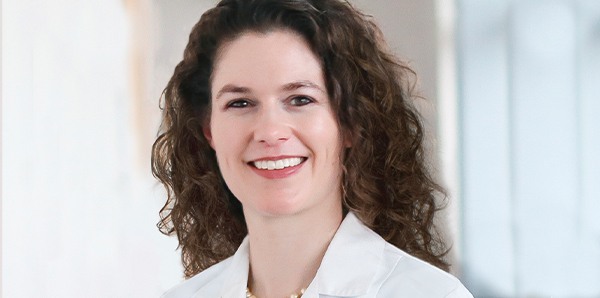 Meet Dr. Courtney Voelker
COURTNEY C.J. VOELKER, MD, PhD Director, Otology/Neurotology-Lateral Skull Base Surgery; Director, Adult & Pediatric Cochlear Implant Program Dr. Voelker is an otolaryngology – head & neck surgeon who takes care…
Meet Dr. Courtney Voelker
COURTNEY C.J. VOELKER, MD, PhD Director, Otology/Neurotology-Lateral Skull Base Surgery; Director, Adult & Pediatric Cochlear Implant Program Dr. Voelker is an otolaryngology – head & neck surgeon who takes care…
 A PNI Minute | What Are Cochlear Implants?
The cochlear implant is an electronic device that is implanted into the inner ear (the cochlea) to restore hearing in patients for whom hearing aids are no longer effective or…
A PNI Minute | What Are Cochlear Implants?
The cochlear implant is an electronic device that is implanted into the inner ear (the cochlea) to restore hearing in patients for whom hearing aids are no longer effective or…
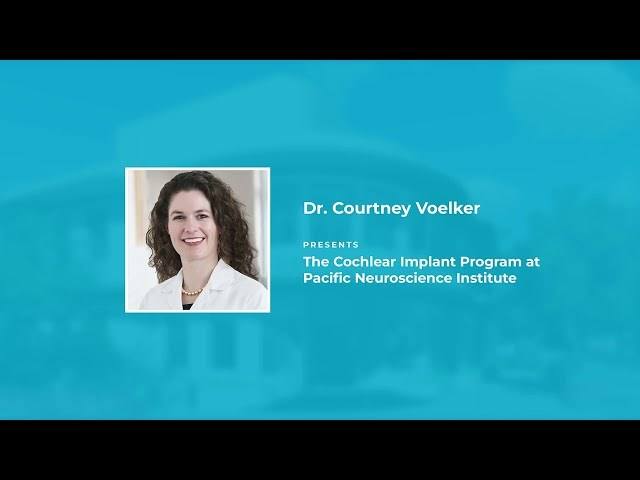 Cochlear Implant Program at Pacific Neuroscience Institute | Dr. Courtney Voelker
Cochlear Implant Program at Pacific Neuroscience Institute | Dr. Courtney Voelker
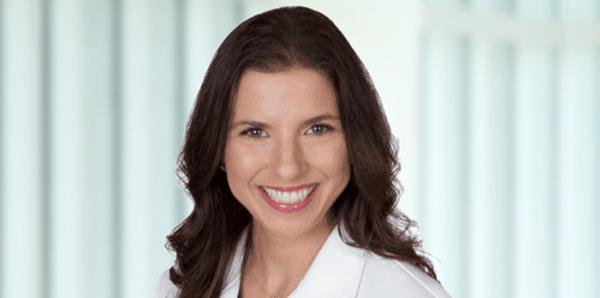 Meet Dr. Rebecca Lewis
REBECCA LEWIS, AuD Audiology Director, Adult & Pediatric Cochlear Implant Program; Audiologist Dr. Lewis is a board certified audiologist focusing on adult and pediatric patients. An avid clinician, educator, and…
Meet Dr. Rebecca Lewis
REBECCA LEWIS, AuD Audiology Director, Adult & Pediatric Cochlear Implant Program; Audiologist Dr. Lewis is a board certified audiologist focusing on adult and pediatric patients. An avid clinician, educator, and…
 A PNI Minute | 5 Myths About Cochlear Implants
Though cochlear implants are incredibly useful in improving patients hearing, there are still many misconceptions and myths that surround them. For example, it’s a common misconception that deafness is a…
A PNI Minute | 5 Myths About Cochlear Implants
Though cochlear implants are incredibly useful in improving patients hearing, there are still many misconceptions and myths that surround them. For example, it’s a common misconception that deafness is a…
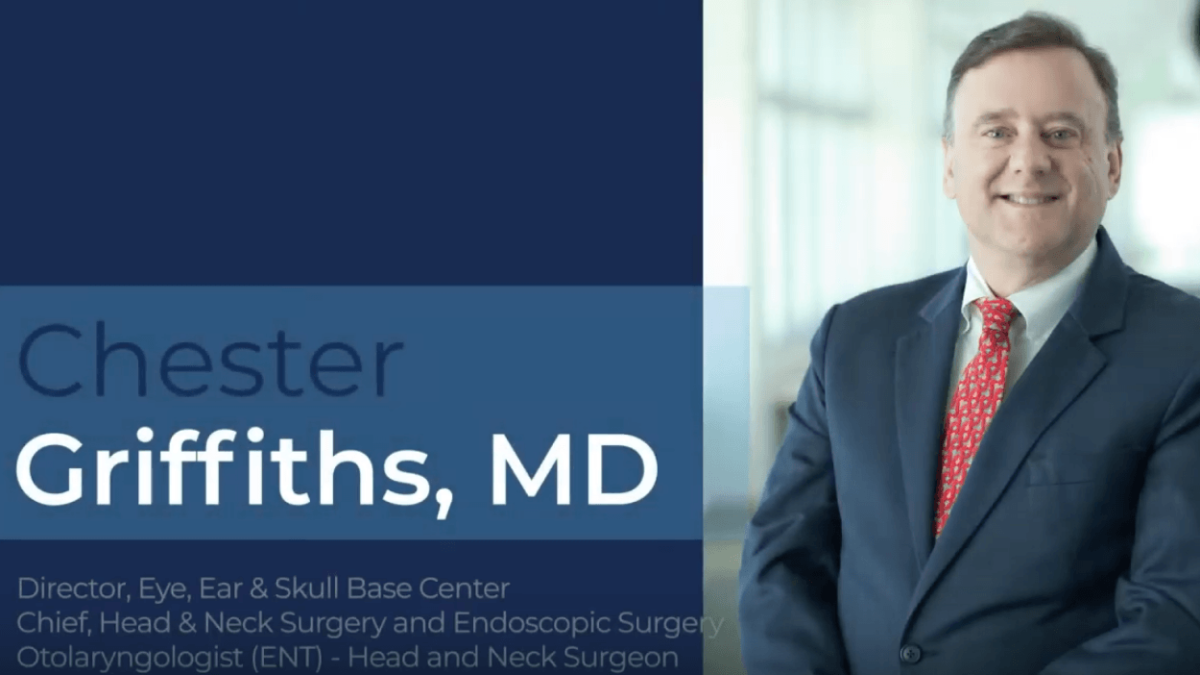 Meet Dr. Griffiths
Dr. Griffiths, MD, FACS, is board certified in Otolaryngology, Head and Neck Surgery and Facial Plastic and Reconstructive Surgery. He has an extensive 25 year experience in endoscopic endonasal sinus…
Meet Dr. Griffiths
Dr. Griffiths, MD, FACS, is board certified in Otolaryngology, Head and Neck Surgery and Facial Plastic and Reconstructive Surgery. He has an extensive 25 year experience in endoscopic endonasal sinus…
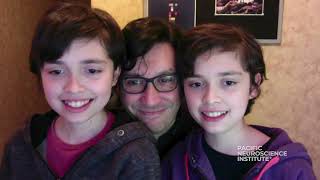 Grateful Patient Story | Ortiz Family | Dr. Chester Griffiths’ Pro Bono Care at Venice Family Clinic
Manuel moved to Los Angeles as a PhD student from Chile in 2012 with his family. When his twin boys had not spoken at 20 months, he knew they needed…
Grateful Patient Story | Ortiz Family | Dr. Chester Griffiths’ Pro Bono Care at Venice Family Clinic
Manuel moved to Los Angeles as a PhD student from Chile in 2012 with his family. When his twin boys had not spoken at 20 months, he knew they needed…
 Rediscovering Music After Hearing Loss | Ronnie’s Inspiring Patient Story
Ronnie overcame severe ear pain and hearing loss with the help of Courtney Voelker, MD, PhD, at Pacific Head and Neck . Follow his journey through two successful surgeries to…
Rediscovering Music After Hearing Loss | Ronnie’s Inspiring Patient Story
Ronnie overcame severe ear pain and hearing loss with the help of Courtney Voelker, MD, PhD, at Pacific Head and Neck . Follow his journey through two successful surgeries to…

Meet Dr. Courtney Voelker

A PNI Minute | What Are Cochlear Implants?
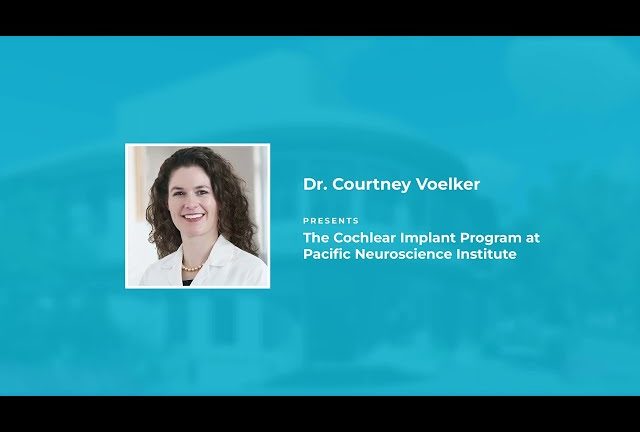
Cochlear Implant Program at Pacific Neuroscience Institute | Dr. Courtney Voelker

Meet Dr. Rebecca Lewis

A PNI Minute | 5 Myths About Cochlear Implants
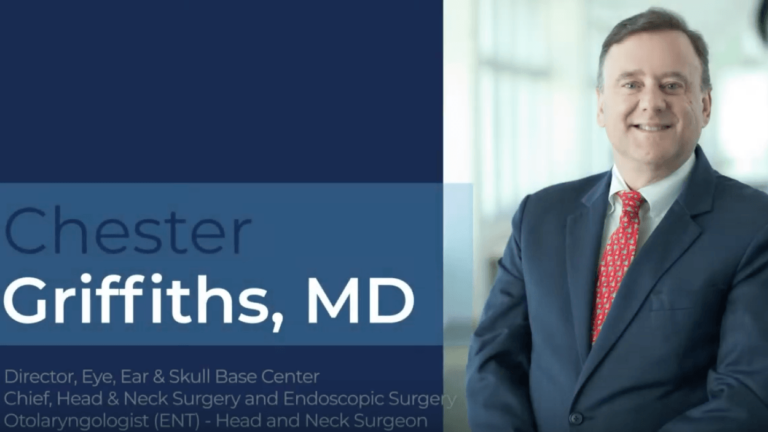
Meet Dr. Griffiths

Ortiz Family Story | Hearing Restoration







